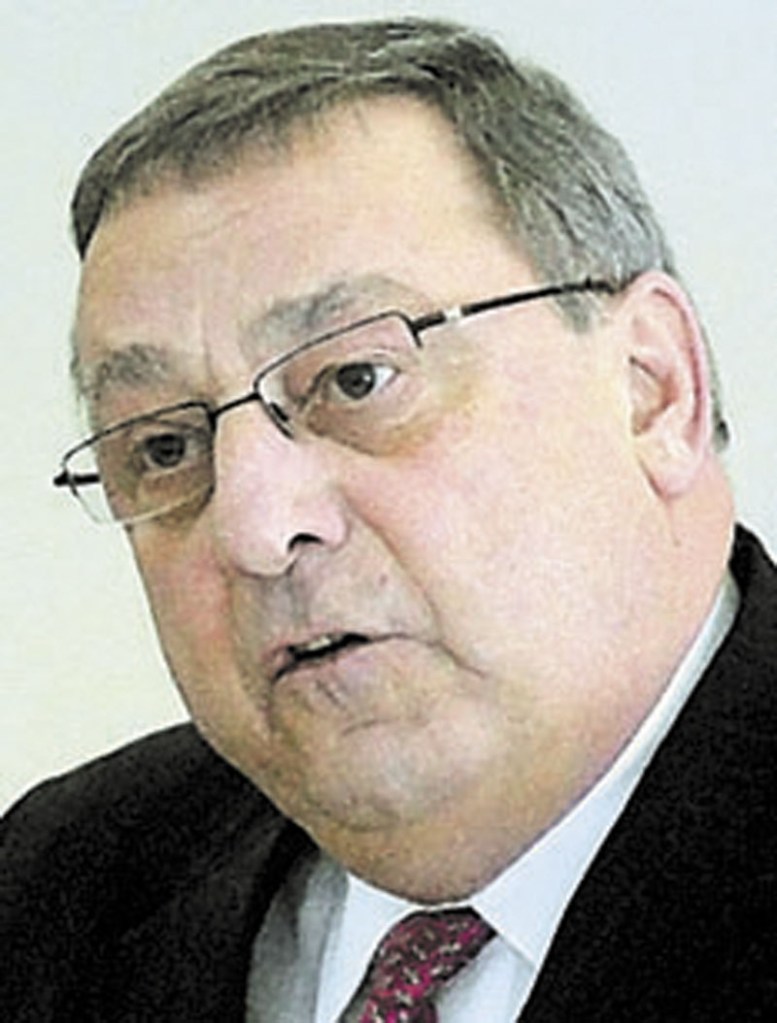SOUTH PORTLAND — Gov. Paul LePage told business leaders at Southern Maine Community College Wednesday that legislation passed earlier this year to reduce red tape was just a “down payment” on the work he intends to do to help them prosper.
“We cannot afford to lose any jobs,” he said. “We need to create jobs, and better jobs. That’s what we’re here for today. You need to tell us where we need to focus. By the first of the year, I would like to see this economy a lot more vibrant, a lot more excited.”
LePage spoke briefly in the gymnasium of the college to about 80 business leaders who signed up to participate in the first of three Job Creation Workshops scheduled to be held across the state. Many of LePage’s top cabinet officials were on hand to talk, but mostly listen, to the business community.
LePage spokeswoman Adrienne Bennett said a few nonprofits, in particular hospital executives, did attend the workshop, but that the governor’s intent was to focus on the business community. Earlier this week, MaineToday Media reported that the head of the state’s association of nonprofits was upset that they were not allowed to attend the workshop.
“We’re focusing now on private enterprise, which are the catalyst for job creation,” Bennett said. “Without private enterprise, we don’t have the jobs, the wages, that create funding for nonprofits.”
She said there will be future opportunities for nonprofits to meet with state officials.
Before the afternoon workshop began, Kelley Shimansky, vice-president of human resources for Wright Express, said her company has had trouble finding skilled workers in Maine. The company, which specializes in credit card payment and data processing, often has to recruit workers from other states, she said.
“We’re working with the university system to look at information technology programs to see how they need to be modified,” she said. “Other employers in the state retrain Maine graduates.”
Wright Express, which has its corporate headquarters in South Portland, employs 850 people worldwide, including 600 in Maine, she said.
Architect Christopher Briley of Yarmouth, who owns Green Design Studio, said he wanted to tell the governor that the Efficiency Maine program, which provides money for weatherization, is an important part of the state economy.
“My business is OK right now, but I still have a level of fear for what the future may hold,” he said.
After LePage’s address to the group, there were three breakout sessions to give business owners time to talk to state officials and directly to LePage. The media was not allowed into the session with the governor because he wanted businesses to speak freely, Bennett said.
In a session with Department of Economic and Community Development Deputy Commissioner Deb Neuman, about 25 people listened to a quick overview of what the state offers to businesses.
“We are the experts in all of these resources, all of the alphabet soup,” she said.
Earlier this year, the Legislature passed L.D. 1, a bill that established a voluntary environmental audit program at the Department of Environmental Protection for businesses to self-report violations, created a small business advocate in the Secretary of State’s Office, and required agencies to include citations for up to three primary sources of information used to write rules.
In his opening remarks on Wednesday, LePage said he’ll continue to work to make the state more responsive.
“It’s not that we can’t get it done,” he said. “We want to get it done. The problem is we need to change some culture, some attitude so you can go to work in the morning knowing you can move forward and there’s not going to be an obstacle in Augusta.”
Susan Cover — 620-7015
scover@mainetoday.com
Send questions/comments to the editors.


